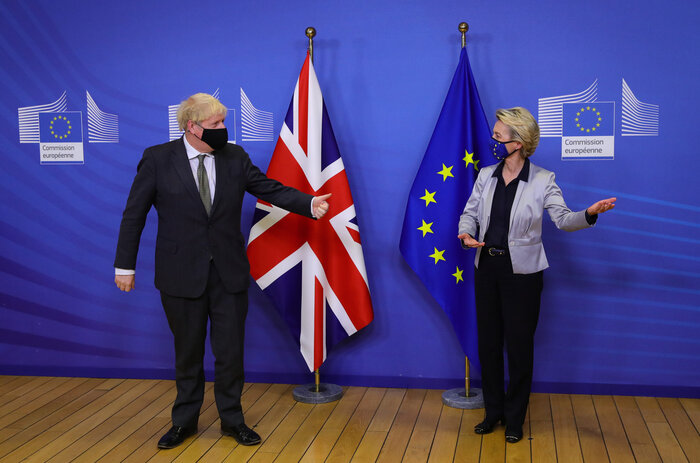Javad Kachooiyan told the Strategic Council on Foreign Relations that the Northern Ireland Protocol has been one of the most controversial issues in the relations between Brussels and London after Brexit.
Referring to the disputes between Ireland and the European Union with the UK on Brexit such as the Northern Ireland Protocol, he said “in the current situation, Northern Ireland is completely under British rule, and it seems very unlikely that Britain will have the slightest chance of withdrawing it from its own sovereignty.”
He added that even when it came to holding a referendum in Ireland, Britain tried to influence the outcome of the referendum by issuing Northern Irish passports to a number of Afghans and settling them in those areas.
Britain impeding the re-union of the two Irelands
Referring to the interest of Northern and Southern Ireland to reunite and create a united island of Ireland, the former diplomat said Britain will use all its tools and facilities to prevent the unification of the two Irelands in order to implement its policies in the region. In fact, he said, the issue of Ireland and its opposition to the creation of border was one of the issues that led to the prolongation of the Brexit negotiations.
Kachooiyan referred to the experience of Scotland and public protests in the aftermath of Brexit and said polls suggest that in the current situation, a majority of Scots want an independence referendum to end the 314-year-old alliance with Britain, but Britain, after a series of putting economic pressures on Scotland, drew them to the conclusion that it is in their favor anyway to remain part of the UK, and this will be definitely considered by Ireland.
The European affairs analyst commented on the tough stance of European countries, especially Germany and France, in supporting Ireland and criticizing Britain for not adhering to the Brexit agreement, adding that “European countries are trying to use the Northern Ireland issue in their own interests to put pressure on UK and demand concessions in another situation. However, given its predictions for the coming years, Britain has concluded that joining the EU does not serve its interests and should move closer to the United States by leaving the bloc.
Europe’s tough stance on Ireland
Kachooiyan explained that after the Brexit, Britain faced serious problems in sending goods to Northern Ireland, which is part of the country but subject to EU trade law, and has repeatedly called for renegotiation of the Northern Ireland Protocol, but the EU has vehemently rejected any renegotiation.
Former ambassador of Iran to Ireland referred to the war of words between the UK and the European Union and British threat to suspend some parts of the Brexit deal, saying that “during the Brexit negotiations, Germany, France and other European countries supported Ireland’s position. Britain is also using its tools to maintain its goals; However, Ireland does not see the creation of a border in its favor, and Britain sees this as a weakness of Ireland and takes advantage of it.”
Kachooiyan emphasized that European Union pressures on the UK will not make London surrender, adding that “London knows that if it takes a step back in terms of choice, it will have to take more steps in that direction, so it will resist those pressures. In fact, Britain is not trying to fully resolve the crisis over the Brexit and the Irish question. However, these files are available to the UK as a tool and a push lever, and by solving them, it loses the game tools.”
He said that after meeting with British Foreign Secretary David Frost, the Vice-President of the European Commission accused London of evading to reach an agreement on cross-border challenges. It should not be forgotten that Britain as a whole is advancing its foreign interests and policies by creating crises and maintaining challenges.
Asked about the challenges of Brexit for the future of Britain, he said new polls suggest British politicians want closer ties with the EU over Britain’s future role in the post-Brexit period, but are concerned about the tough stance of France and Germany, given their approach.
“According to estimates, Britain’s gross domestic product will also fall by about 4 percent after the Brexit, compared to the time it was a member of the union,” he said, adding that Britain lost many of its financial and commercial advantages in Europe and the world with the Brexit deal.
Kachooiyan said Brexit has had enormous geopolitical impacts on the domestic developments as well as political, economic, security, defense, financial and energy dimensions of Europe, adding that the negative consequences of Britain’s exit from the European Union are felt more and more over time, and these challenges, which manifest themselves each time in different areas, have reduced the public’s enthusiasm for the Brexit, according to opinion polls.










0 Comments